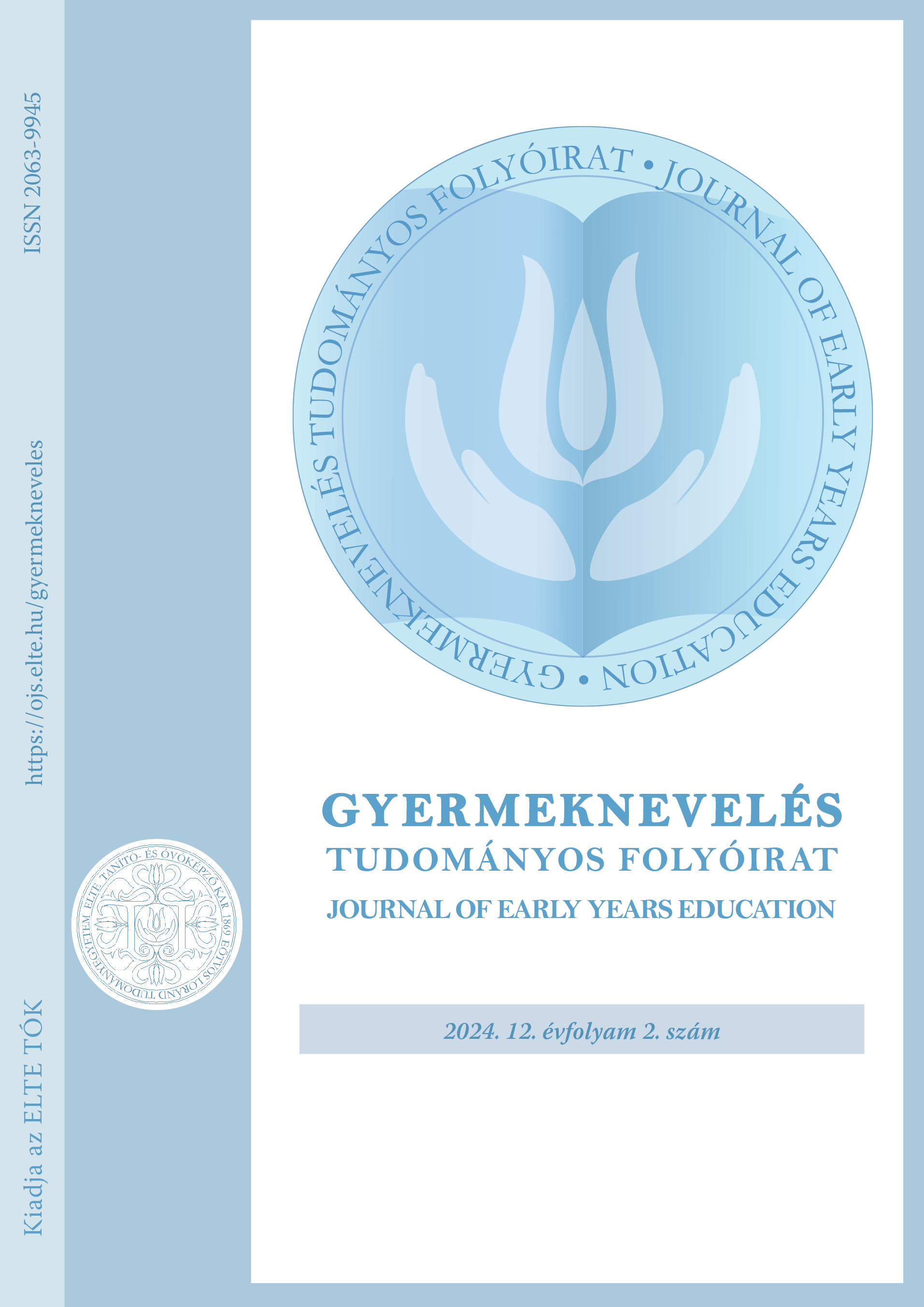The IT habits and mathematical experience base of the 'alpha generation' in Hungary
Some results of an online questionnaire survey
DOI:
https://doi.org/10.31074/gyntf.2024.2.24.44Keywords:
alpha generation, use of IT tools, mathematical experience base, complex mathematics teachingAbstract
In this article, I present some previously unpublished results of a research conducted in 2014-2019. The research consisted of two parts. The theoretical part is based on international and Hungarian literature. In this section, I investigated whether the conditions set forth in Károly (Karl) Mannheim’s generational theory are fulfilled in the case of children born in 2010 and after. The second part is an empirical part, in which I collected data about the IT device usage habits of the children in the indicated age group and their mathematical experience base before going to school. The method of data collection was a questionnaire survey. The first, pilot survey was a paper-based questionnaire that I posted to several kindergartens in Budapest in 2015. The questionnaire was voluntarily filled out anonymously by the relatives of 95 children. The answers highlighted that it is worth researching the topic. That is why I created an improved online questionnaire in 2018. The questionnaire was available nationwide, and it was filled out anonymously and voluntarily by the relatives of 345 Hungarian children.
Downloads
References
Anderson, J. (2015). How to tell if your child’s educational app is actually educational, Quarz Media LLC [US], November 11. https://qz.com/544963/how-to-tell-if-you-childs-educational-app-is-actually-educational/
Alloway, T. P., Williams, S., Jones, B. & Cochrane, F. (2014). Exploring the impact of television watching on vocabulary skills in toddlers. Early Childhood Education Journal, 42(5), 343–349. https://doi.org/10.1007/s10643-013-0618-1
Barr, R. & Lerner, C. (2014). Screen sense: Setting the record straight. Research-based guidelines for screen use for children under 3 Years old. Zero to Three.
Buda, A. (2019), Generációk, társadalmi csoportok a 21. században, Magyar Tudomány, 180(1), 120–129. https://doi.org/10.1556/2065.180.2019.1.12
Smartphone Market Hits All-Time Quarterly High Due To Seasonal Strength and Wider Variety of Offerings, According to IDC , Bussines Wire, February 06, 2012 https://www.businesswire.com/news/home/20120206005252/en/Smartphone-Market-Hits-All-Time-Quarterly-High-Due-To-Seasonal-Strength-and-Wider-Variety-of-Offerings-According-to-IDC
Nagy, Á. & Kölcsey, A. (2017). Mit takar az alfa-generáció? Metszetek – Társadalomtudományi Folyóirat, 6(3), 20–30. http://real.mtak.hu/62396/1/alfagen_metszetek_u.pdf
Nagy, Á. (2017). Az Alfa generáció magyarországi recepciója. Kultúra és Közösség, 8(3), 53–60. https://doi.org/10.18392/metsz/2017/4/2
McCrindle, M. (2015). The McCrindle blog: http://mccrindle.com.au/BlogRetrieve.aspx?PostID=631099&A=SearchResult&SearchID=9286491&ObjectID=631099&ObjectType=55 (2017.01.15.)
McCrindle, M. (2018). The ABC of XYZ; Understanding the Global Generations, https://www.researchgate.net/publication/328347222_The_ABC_of_XYZ_Understanding_the_Global_Generations
Mannheim, K. (1969). A nemzedéki probléma, In Huszár T. (Ed.). Ifjúságszociológia (pp. 31–67.), Közgazdasági és Jogi Könyvkiadó (Eredeti mű: Das Problem der Generationen, Kölner Vierteljahreshefte, 1928)
Ong, J. (2011). Gartner projects Apple’s iPad to maintain 50% market share through 2014. appleinsider.com, September 23. https://appleinsider.com/articles/11/09/22/gartner_projects_apples_ipad_to_maintain_50_market_share_through_2014
Origo (2012. 01.02.). Tíz fővárosi kerületben startolt a hazai 4G mobilnet. https://www.origo.hu/techbazis/2012/01/tiz-fovarosi-keruletben-startolt-a-hazai-4g-mobilnet
Pintér, M. (2016). Milyen tapasztalatokkal kerül az alfa-generáció az iskolába: A Varga Tamási hagyományok és az IKT-eszközök (előzetes) használata, Új Köznevelés, 72(8), 27–29. http://folyoiratok.ofi.hu/uj-kozneveles/milyen-tapasztalatokkal-kerul-az-alfa-generacio-az-iskolaba
Reding, V. (2003). Early learning in the information society. IBM Conference. http://europa.eu/rapid/press-release_SPEECH-03-261_en.htm
Sakai, K. & Shiota, S. (2016). A practical study of Mathematics Education using Gamification, International Conferences ITS, ICEduTech and STE 2016, https://eric.ed.gov/?id=ED571606
Suhana, M. (2017). Influence of Gadget Usage on Children’s Social-Emotional Development, Advances in Social Science, Education and Humanities Research (ASSEHR), volume 169 International Conference of Early Childhood Education (ICECE 2017). https://doi.org/10.2991/icece-17.2018.58
WHO: To grow up healthy, children need to sit less and play more, 2019. 04. 24. https://www.who.int/news-room/detail/24-04-2019-to-grow-up-healthy-children-need-to-sit-less-and-play-more (2019.05.21.)
Wolfram, C. (2010). Teaching kids real math with computers. TED Talk, https://www.ted.com/talks/conrad_wolfram_teaching_kids_real_math_with_computers/transcript?language=en#t-20565
Downloads
Published
How to Cite
Issue
Section
License
Copyright (c) 2024 Author

This work is licensed under a Creative Commons Attribution-NonCommercial-ShareAlike 4.0 International License.

